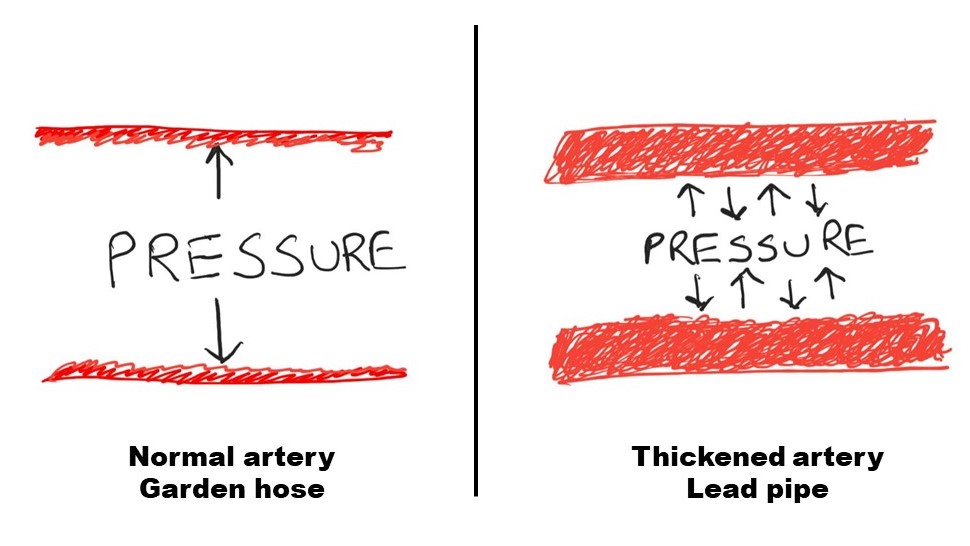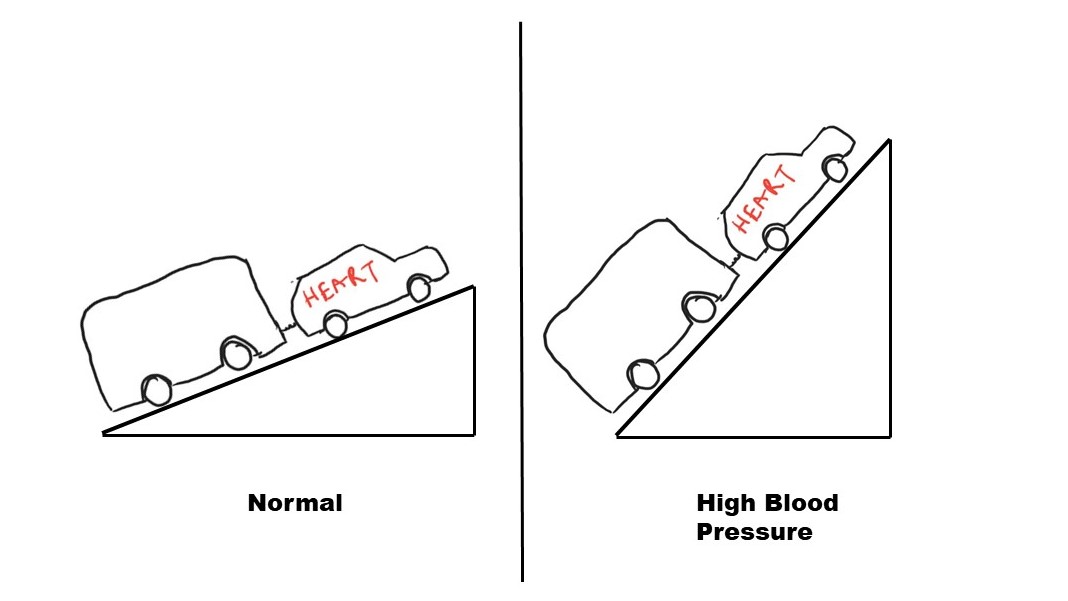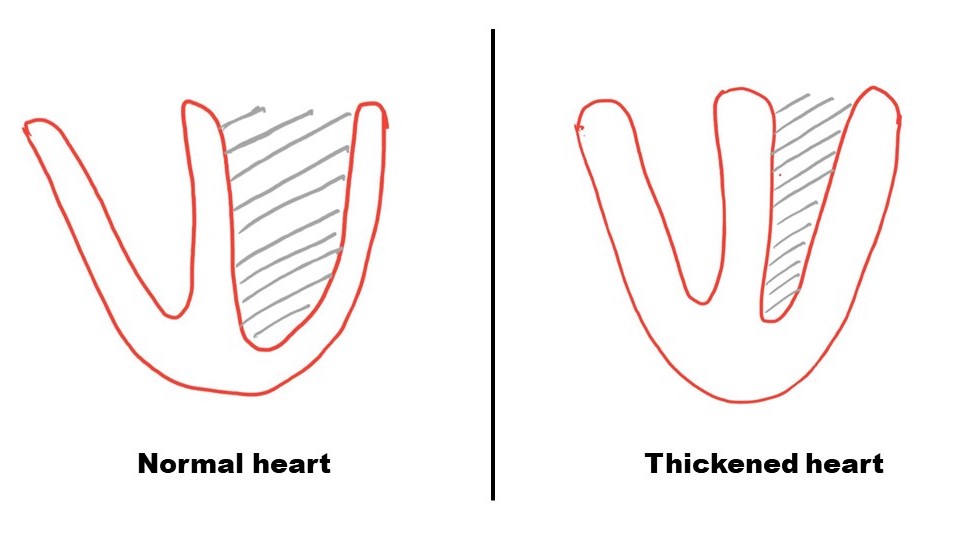
High blood pressure or hypertension
As per the new ACC/AHA guidelines, blood pressure >130/80 is high blood pressure or hypertension. Emphasis is given to multiple readings obtained on multiple occasions rather than a single reading. This is because various factors can influence a single blood pressure reading including prior activity, smoking, caffeine intake, cuff size, stress etc.
Refer to the section on blood pressure to understand how blood pressure works and how it is measured. Briefly, blood pressure is represented as two numbers. The higher number represents the spike in blood pressure when the heart pumps blood into the arteries with each heart-beat. Like a wave travelling forward and this is felt as a pulse. The lower number represents the pressure within the arteries in between the heart-beat. Read about the effect of salt on blood pressure.
Why do we have blood pressure?
Blood pressure is required to push the blood to various organs. Like a garden hose, without continuous water pressure applied by the tap, water will not flow and come out of the other end. Too low water pressure and the water flow dries out. Too high pressure and the water jets out too fast and may even rupture the pipe at the weak segments.
What effects does high blood pressure or hypertension have?
On the artery:
Too much pressure in the arteries is a constant stress on the artery wall. High pressure causes changes in the artery, making them firm. This is like a garden hose replaced with a lead pipe, inflexible and non-expandable. This increases the resistance to blood flow and further increases the pressure (figure 1).

Constant stress and injury to the wall can also accelerate cholesterol plaque formation.
On the heart:
The heart has to work against the high pressure to pump the blood forward. This is like a small car, with a trailer attached at the back, trying to climb a steep slope. Higher the pressure, steeper the slope. (figure 2). More uncontrolled the blood pressure or hypertension, more the effort required by the heart.

The heart responds initially by becoming thicker and beefed up (like arm muscles after lifting heavy weights). Like adding more horsepower to the car going up the hill. Shouldn’t this be favorable? Actually, no.
Firstly, the heart is now consuming more energy and if the blood supply is not good, then this can cause the heart to fail. Like the car running out of gas midway through the climb. Secondly, the thick heart does not expand fully to accept the incoming blood (figure 3).

More pressure is needed to push the blood into the heart. This is the difference between filling air in a balloon compared to filling air in a car tire. The pressure in the entire blood system goes up: the arteries, the veins, the lungs, various organs etc. Excessive pressure causes fluid to leak out from the blood vessels, such as swelling in legs or fluid in the lungs.
This constant stress on the heart causes excessive wear and tear and eventually the heart may weaken as a pump, causing heart failure.
On the organs:
The various organs are also severely affected by hypertension. The kidneys are affected by changes in the arteries mentioned above affecting its function. Small bleeds may happen in other organs such as the brain, retina or liver from rupture of smaller arteries from high pressure. This could also affect the function of these organs.
Most of these changes occur over time and may not be manifest until later stages. The review is not exhaustive in any manner and many effects of high blood pressure are still being studied.
Listen on:

What causes high pressure in the lungs instead?
All opinions expressed here are those of the author and not of the employer. Information provided here is for medical education only. It is not intended as and does not substitute for medical advice. Check out the youtube channel.
Very gud sir